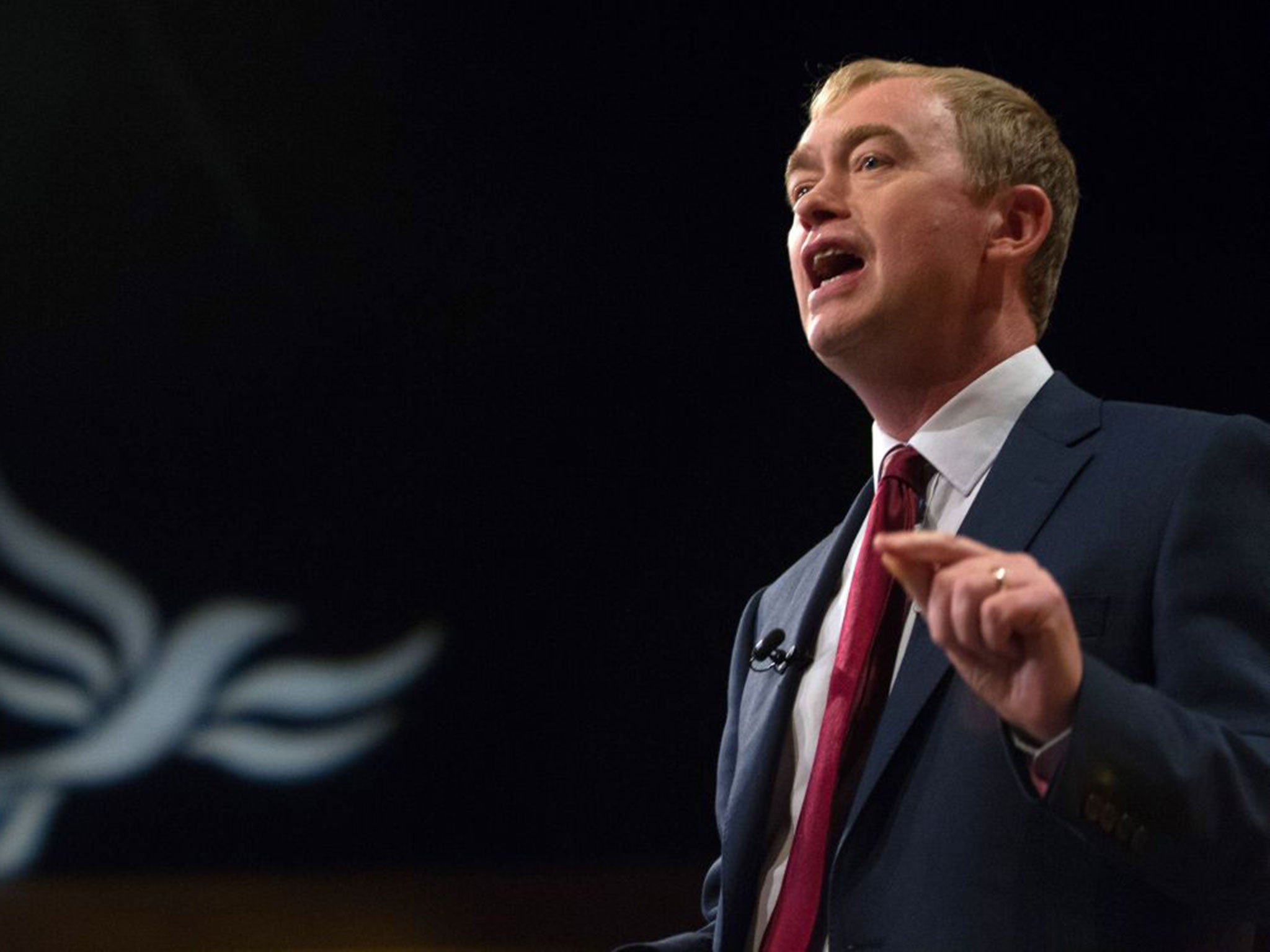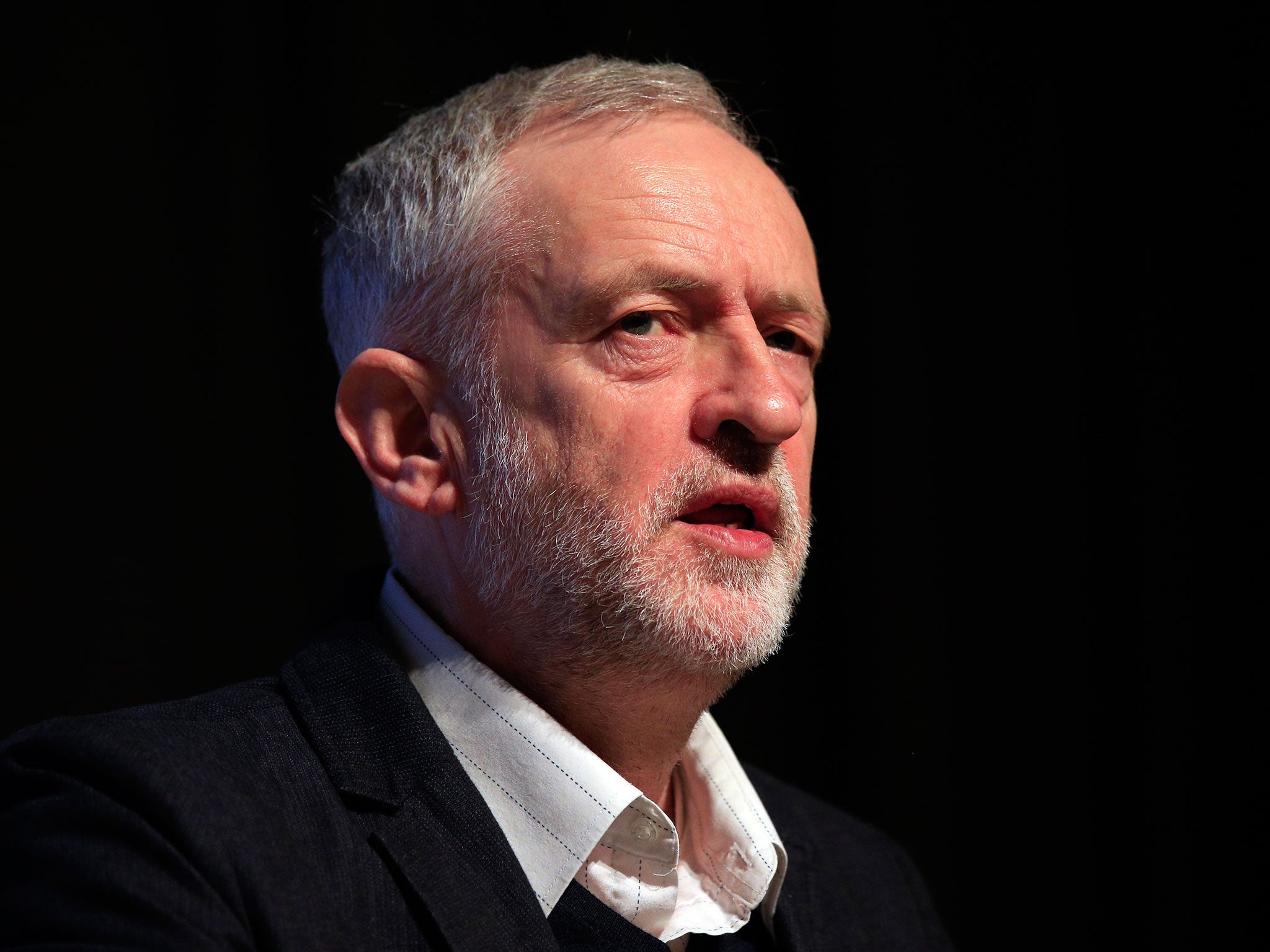Jeremy Corbyn in secret talks with Tim Farron over voting reform alliance against Conservatives
Mr Farron's aides talking to Labour MP – a close ally of Mr Corbyn – who is acting as a conduit between the two leaders

Tim Farron, the Liberal Democrat leader, is in secret talks with Jeremy Corbyn about voting reform in a bid to form a progressive electoral alliance against the Conservatives.
Mr Farron’s aides are talking to a Labour MP – a close ally of Mr Corbyn – who is acting as a conduit between the two leaders, The Independent on Sunday can reveal.
However, for the talks to progress, the Lib Dems want a respected senior figure in the Labour Party to take on a formal role as a go-between. “It should be a former Cabinet minister, or someone of that rank,” said a Lib Dem source.
The Scottish National Party, Plaid Cymru and the Greens could also be involved in the talks, the source said. If the negotiations are successful, up to five left-of-centre parties could stand on an agreed platform of voting reform at the 2020 election – giving them a mandate to scrap Westminster’s first-past- the-post system without a referendum, so long as they are able to secure a majority in the Commons. Ukip also backs electoral reform, but is unlikely to enter into a pact with Labour or the Liberal Democrats.

Lib Dem MPs are still scarred by the 2011 referendum defeat on the “Alternative Vote” – when 68 per cent voted to keep the current system. Out of more than 400 boroughs in the country just 10 backed replacing first past the post with AV. But a source close to Mr Farron insisted a referendum was not needed to change the system if a majority of MPs in Parliament stood on a manifesto to change the rules.
The source added: “Tim has always said electoral reform is a key part of reshaping British politics. He will work with anyone, in all parties and none, to deliver that.”
A brief history of electoral reform
- 1931 Labour and Liberal parties combine to try to change the voting system under Ramsay MacDonald’s Labour government. It would have brought in the Alternative Vote, allowing voters to rank candidates in order of preference. The Bill was lost when the Government fell. The two-party era The Liberals, and now the Liberal Democrats, remain committed to reform, favouring the Single Transferable Vote, a roughly proportional system in which large constituencies elect three to five MPs, as in Ireland.
- 1998 Tony Blair asks the Lib Dems’ Roy Jenkins to propose a more proportional system to put to a referendum. He comes up with the Alternative Vote Plus, which would allow preferential voting but elect extra MPs for large areas to “top up” under-represented parties.
- 1999 Blair shelves that report, reneging on the referendum promise, but brings in the Added Member System for Scotland, Wales and London, a proportional system where MPs elected from constituencies are “topped up” from party lists.
- 2011 The Alternative Vote was a bargaining chip in coalition talks in 2010 between David Cameron and Nick Clegg. The referendum on AV is defeated (68 to 32 per cent).
John Rentoul
Mr Corbyn was asked by The IoS if he would be willing to talk to the Lib Dems about agreeing a form of electoral reform that could be put into his 2020 manifesto. The Labour leader said: “It could be, but it’s too early to say.” Asked if he was open to it, he replied: “Obviously.” He said he was open to a form of proportional representation as long as it maintained the link between MPs and their constituency. “If parties are getting less than 40 per cent of the vote – that seems to be the trend from the last four elections – we have to recognise that,” he added.
Responding to Mr Corbyn’s remarks, Mr Farron said: ‘From Ukip to Chuka Umunna to the Lib Dems, we all agree that every vote should matter; and if we can sit down and discuss the issue, then let’s talk.’
However, Mr Corbyn will face a furious backlash from many of his own MPs to any proposal to work with the Lib Dems or change the voting system. John Spellar, the veteran Labour MP for Warley, said the proposal to agree a deal was “fundamentally undemocratic”. He said: “It’s politics by the back door. All it does is transfer power from communities to a coterie of elites.
“Not only am I against it, it was overwhelmingly rejected by the public. It’s only the metropolitan elite which supports this – ordinary people have more sense. Yet again, the metropolitan classes are getting together – the Lib Dems and Islington – to stitch things up.”
But Jonathan Reynolds, the MP for Stalybridge and Hyde who introduced a backbench bill last month calling for the first-past-the-post system to be abandoned, said he “welcomed” the talks. “I have talked to Jeremy about electoral reform and he’s been quite receptive.” His proposals to overhaul the system will be included in a policy review being carried out by the shadow Cabinet Office minister, Jon Trickett.
“I think it is essential and it’s really exciting to hear about the talks. I’d be very keen to see it happen,” Mr Reynolds said. “The system we have heavily distorts politics. At the last election the Lib Dems got one million more votes than the SNP, but the SNP are a major force in Westminster and the Lib Dems are a joke.”
The Electoral Reform Society, which campaigns for an end to first past the post, also welcomed the move. A spokesman said: “After the most disproportionate election result in history last year, it’s good to hear leading politicians responding to widespread calls for a fairer voting system.
“All parties ought to recognise that first past the post is simply not fit for purpose, and we hope that this is the start of getting rid of our broken voting system for good.”
Another option being floated by Mr Corbyn’s opponents in the party is for centrist MPs to split off and form an alliance with the Lib Dems, isolating the hard left. The proposal comes on the 35th anniversary of the “Limehouse Declaration” tomorrow, when Labour’s “gang of four” broke away to form the SDP.
A Lib Dem MP told The IoS: “We might have only eight seats now, but we won’t stay there. We could be up over 20 after the next election. Labour are not going to get a majority on their own, so they will need whatever we’ve got.”
However, the Lib Dem MP added: “It would require a deal on electoral reform – that would be a prerequisite. We can’t go through another referendum.”
Last month The IoS revealed how Mr Corbyn had opened the door to a controversial agreement not to contest Brighton Pavilion, the seat currently held by the Green Party’s only MP, Caroline Lucas.
Join our commenting forum
Join thought-provoking conversations, follow other Independent readers and see their replies
Comments
Bookmark popover
Removed from bookmarks